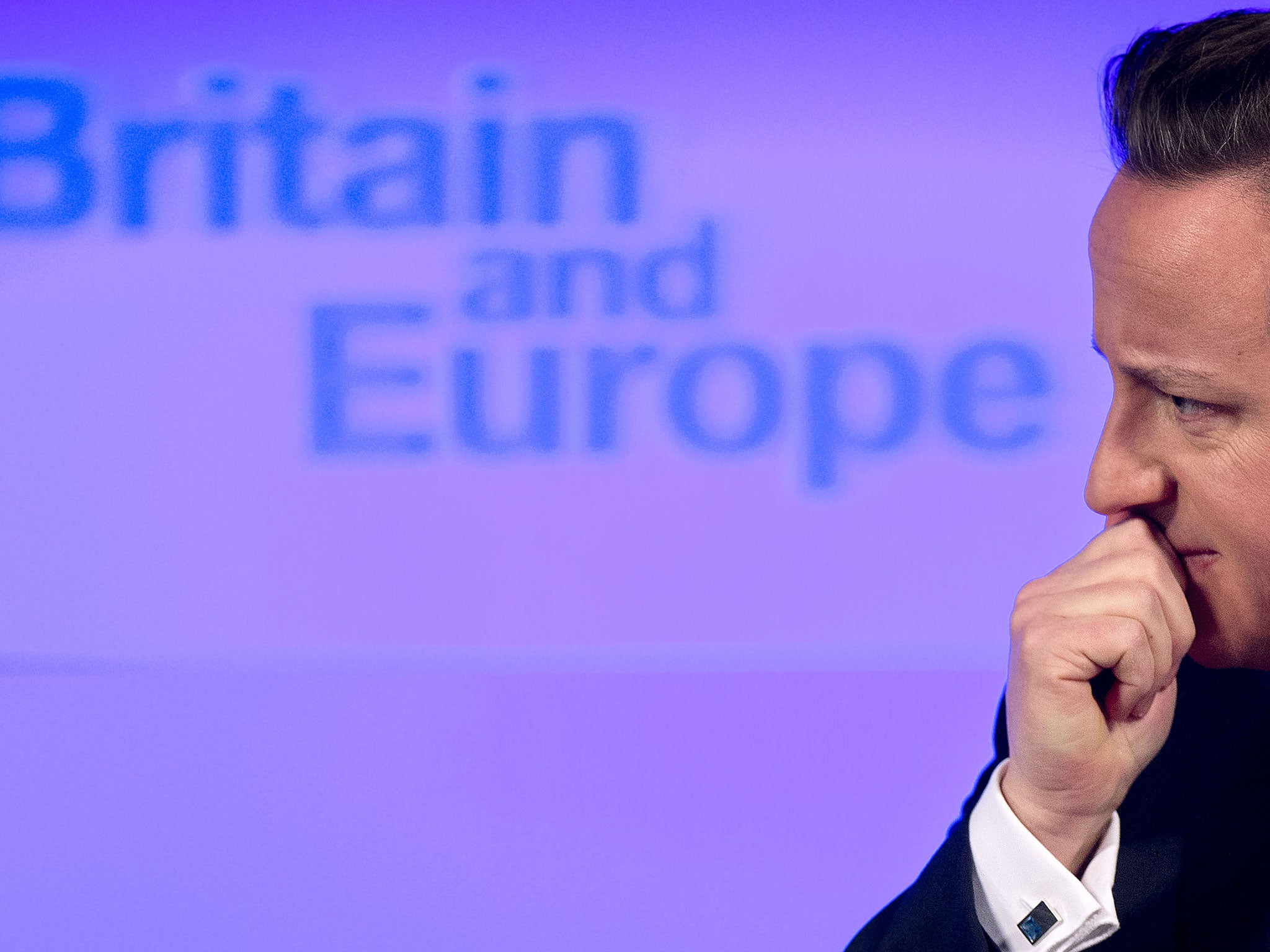Exclusive: Treasury to warn British public of economic risks of leaving EU - and Tory Eurosceptics are furious
Sir Nicholas Macpherson is accused of trying to scare the public into a Yes vote in an EU referendum

Senior civil servants are preparing to play a “critical role” setting out the economic risks of Britain voting to leave the European Union in any future referendum campaign – to the fury of Tory Eurosceptics.
In a move which will lead to accusations of abandoning political neutrality, officials in the Treasury are planning to draw up a series of papers assessing the “economic implications” of a No vote if a referendum is called.
A senior government source said on Thursday that the view of the Treasury’s Permanent Secretary, Sir Nicholas Macpherson, was that any vote to leave the EU would have unwelcome economic consequences for the UK and this would be reflected in any official assessment.
But it has led anti-European Conservative MPs to accuse Treasury officials of attempting to “scare” the public in favour of a Yes vote.
“In a way it is not surprising because it was Whitehall grandees who took us into this wretched club in the first place,” said the Tory MP Douglas Carswell.
The Treasury position was outlined in a rare speech by Sir Nicholas to the Mile End Group at Queen Mary, University of London. Describing how the Treasury had always been a “strong advocate of free trade”, and the advantages of a single European market, Sir Nicholas said he expected his department to play a “critical role” in influencing any future referendum debate.
He cited its role in producing papers outlining the economic implication of Scottish independence as a precedent for its involvement in any Euro referendum, which will be held by the end of 2017 if the Conservatives win the next election.
The Treasury papers on Scotland have strongly made the economic case for the benefits of the Union, much to the irritation of the Scottish Government.
“Just as the Treasury has played a leading role in setting out the implications of Scotland leaving the free trade area that is the [UK], so would I expect it to play a critical role in setting out the economic implications of the options of staying in or leaving the EU,” Sir Nicholas told the Mile End Group.
A senior government source said his comments reflected Treasury concern that it would not be in Britain’s economic interests to pull out of Europe. The source added that this view was privately shared by George Osborne.
“Even if you could negotiate a free-trade agreement with the rest of [the] EU, you would still have to abide by its regulations and not be in a position to influence them in the future,” the source said. “Sir Nicholas is of the view that while there are aspects of the EU which need to be reformed it would not be in Britain’s long-term economic interests to go it alone. That is a view … shared by the Chancellor.”
The views also reflect those of City institutions who have warned the Treasury that the UK could lose its clout in transatlantic trade and regulatory disputes if it exits the EU.
Yesterday the American bank JP Morgan said in a submission to the Treasury that London was more likely to get what it wants in negotiations over cross-border rules if it negotiates as part of the EU.
“[The UK] acts as a gateway to Europe for many financial institutions and corporates from around the world”, wrote Daniel Pinto, co-chief executive of JP Morgan’s corporate & investment bank in Europe, the Middle East and Africa.
“Their establishment and subsequent growth in the UK is no coincidence but is linked to the country’s membership of the world’s largest single market, the EU.”
But Bill Cash, a prominent Eurosceptic Tory and chairman of the European Scrutiny Committee, said he disagreed, and criticised Sir Nicholas. “I think it is extremely unwise for officials to make remarks of this kind on sensitive issues of national importance,” he told The Independent.
Mr Carswell added: “These comments clearly show that Macpherson and the Treasury are not neutral players in the debate about Britain’s future in Europe. They are signed up members of the Yes campaign … In some ways it is useful to know – because at least we will know who we are up against.”
The Treasury declined to elaborate on Sir Nicholas’s words but a source later stressed that any assessment of EU membership would be “objective” and similar in nature to the Scotland papers.
Duty bound: Civil service advice on the EU
Under the Civil Service Code officials must behave with “objectivity”, basing their advice and decisions on “rigorous analysis of the evidence”. They must also be “impartial”, acting solely according to the merits of the case and serving all governments equally, regardless of politics.
But these strictures provide considerable wriggle room – particularly on a subject such as EU membership.
In truth, nobody knows for sure what the economic consequences would be of Britain leaving the EU. An “objective and impartial” analysis could conclude that it would be detrimental to Britain’s interest to pull out. But it would be equally possible for an “objective and impartial” analysis to conclude that the dangers of quitting have been overestimated and that Britain could benefit from going it alone.
In the end, the official Treasury line on any EU referendum will be determined by the views of George Osborne (or whoever is Chancellor in 2017) and his most senior officials. Where they disagree compromises will be made, language fudged and conclusions watered down.
But at the moment they agree. It is, in their “objective and impartial” view, in Britain’s economic interests to remain in the union.
Oliver Wright
Join our commenting forum
Join thought-provoking conversations, follow other Independent readers and see their replies
Comments